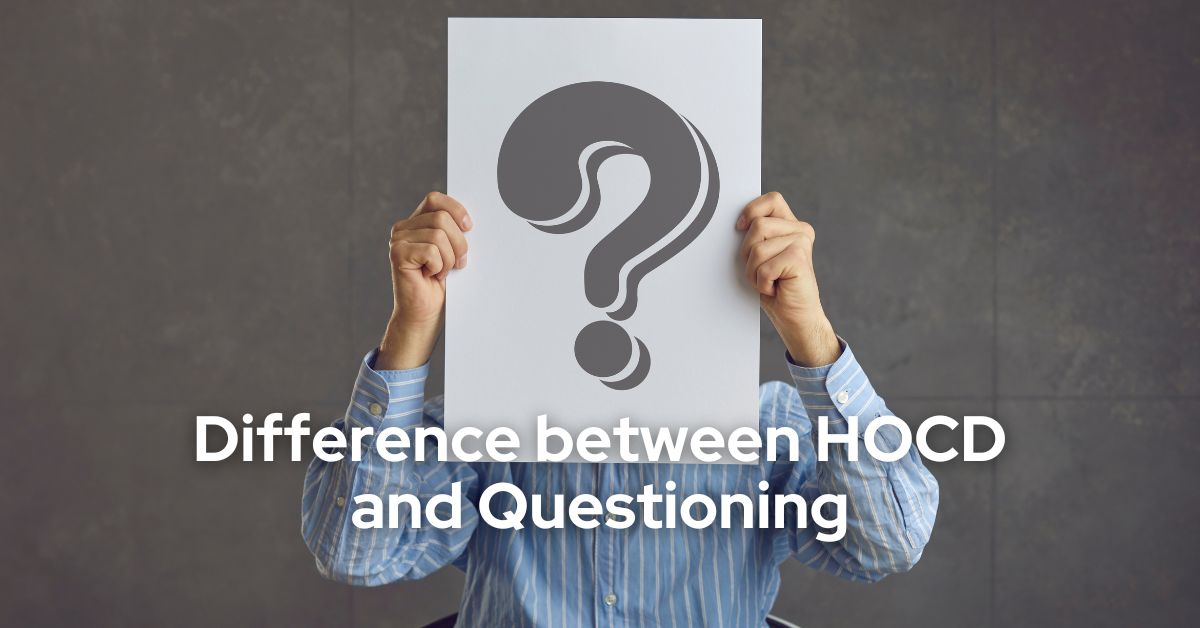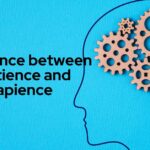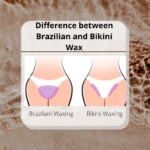Are you feeling anxious and confused because you don’t know what is going on in your own mind? Are you questioning if your sexual orientation has changed, or if it’s just a phase? It can be disconcerting when these questions start to surface and become overwhelming. The good news is that there are ways of making sense of this confusion by understanding the differences between HOCD (Homosexual Obsessive Compulsive Disorder) and mere questioning. In this blog post, we will discuss how to differentiate between HOCD and healthy experimentation with one’s sexuality, as well as how to cope with difficult intrusive thoughts related to both scenarios.
Hocd, questioning and beyond
Adolescence can be the most challenging phase for most people. This is the stage when people discover their sexual and gender identities. For most people, it could be a confusing journey. From learning their attraction to specific genders to questioning their sexual and gender identity. While challenging own sexual identity can be expected from some individuals.
Usually, people identify it in their teenage years. However, some people undergo a long phase to determine their sexual identity. However, things are a bit different for people with HOCD. Their sexual identity journey is often marred with extreme fear, anxiety, and confusion. In most cases, they need the guidance of a therapist.
What is HOCD?
HOCD (Homosexual Obsessive Compulsive Disorder) is a condition where people constantly doubt their sexuality. They continuously imagine homosexual scenarios, images, and thoughts in their head. A person with HOCD is not necessarily homosexual. It is predominantly seen in heterosexual individuals who deeply fear being homosexual. They are scared they will turn homosexual and be ridiculed or ostracized by their loved ones.
It is a subset of Sexual Orientation OCD. Like HOCD, gay people also have a deep-down fear of being straight.
What is questioning in Sexual Identity?
Questioning can be best described as a phase where a person starts questioning their sexual identity. It is the earliest phase of discovering your own sexuality. It is usually seen in homosexual people who begin to be attracted to the same gender. Since they are unknown of the whole sexual identity thing, they begin to question what is happening to them.
The phase can last for months to a couple of years before a person actually realizes their true sexuality.
HOCD vs. Homosexuality

| Differentiating factors | HOCD | Questioning |
| Definition | HOCD stands for Homosexual Obsessive Compulsive Disorder. It is a constant fear of discovering being gay or being turned to gay. | Questioning refers to the process of an individual determining their sexual identity.It is a phase when a person realizes whether they are attracted to the same sex, opposite sex or both. |
| Compulsions | HOCD can bring both mental and physical compulsive behaviors. The compulsions are extremely strong and can impair the productivity and mental health of a person. | There is physical and mental compulsion involved in questioning. However, they are not as extreme as HOCD.Some people may experiment with partners of both genders to determine their sexuality. |
| Sexual Orientation | People with HOCD are generally heterosexuals. They don’t have any sexual attractions for the same gender. Their obsession comes from their fear of turning or being homosexuals. | Questioning of sexuality can happen to people of all sexuality. This includes straight, gay, lesbian, bisexual, asexual, or queer. |
| Degree of anxiety and fear | The fear and anxiety is crippling to the point they can think or function.Their thoughts are constantly occupied with homosexual thoughts even though they want to or feel any arousal for it. | The anxiety and fear is there in questioning too. However, it depends upon the circumstances of a person. For example, a supportive family, friends, and availability of emotional support. |
| Management of fear and anxiety | Can be managed or treated with Cognitive Behavioral Therapy (CBT) and anti-anxiety medications. | It is not something to be treated. Discovering and questioning sexuality is normal. However, people are recommended to seek professional guidance from a licensed therapist. |
The compulsion of HOCD and Questioning
People with HOCD are often seen to:
- Preoccupied with their fear of being gay
- Avoiding interaction with people of the same gender of being scared of turning gay
- Constantly checking their privates to ensure they are not aroused by people of the same gender
- Watching too much pornography to reassure their heterosexuality
- Avoiding visiting a particular area, wearing specific clothes, or using certain phrases
- Watching homosexual pornography to reassure them that it does not turn them on
Note: Feeling attracted to the same gender is pretty common, even for the straightest person. A straight person can feel drawn to the same gender, and a gay person can be attracted to someone of the opposite gender. Feeling attraction is different from the need to have a romantic relationship or engage in sexual activity with that person.
Can a straight person go through a questioning phase?
Yes, they can. It is pretty normal for a person to question their sexual identity. However, questioning sexual identity is comparatively lower in heterosexual individuals than homosexuals.
We still live in a heteronormative society where society assumes a person’s sexuality as heterosexual by default. So, heterosexuals who are attracted to the opposite genders never really have to go through the questioning phase.
The same cannot be said for homosexuals, as a feeling for the same gender could be downright perplexing. This raises a lot of questions about their sexuality.
End Thoughts
In conclusion, it is important to be aware of the distinction between HOCD and questioning. While questioning can be an initial stage in self-discovery, HOCD is an irrational fear caused by obsessive thoughts that are not based on reality or personal desire. People struggling with HOCD will often experience distress while they try to make sense of their intrusive thoughts. It is vital that these individuals obtain help from a mental health professional in order to find peace, control the intrusive thoughts, and ultimately accept themselves as they are. Awareness and understanding of this issue can also help those who are fighting against HOCD feel more supported and accepted. After all, life is about finding yourself and celebrating your difference and uniqueness – not about denying it out of fear for what other people may think.
Reference:
- oasis2care.com/sexuality/decoding-the-difference-between-questioning-your-sexuality-and-sexual-orientation-ocd/
- www.verywellmind.com/what-to-do-when-youre-questioning-your-sexuality-5112793
- www.medicalnewstoday.com/articles/hocd
- www.ncbi.nlm.nih.gov/pmc/articles/PMC4347158/#:~:text=Homosexual%20Obsessive%20Compulsive%20Disorder%20(HOCD)%20is%20marked%20by%20excessive%20fear,mental%20images%20of%20homosexual%20behaviour.







